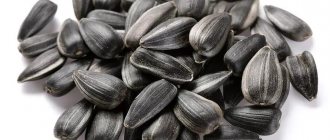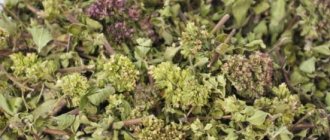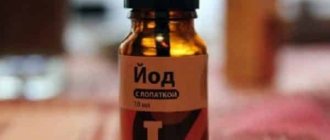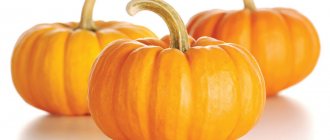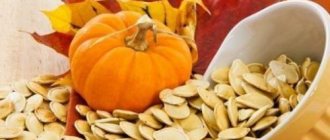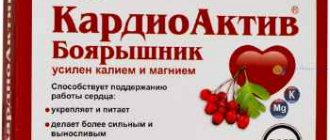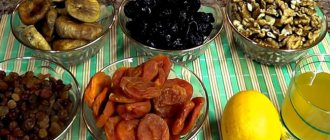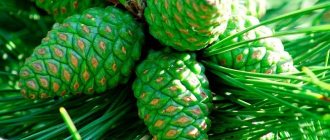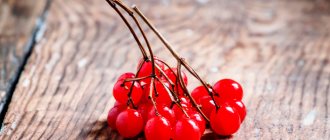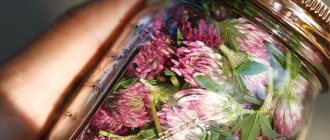10.10.2017
Last modified: July 7, 2021 at 09:13 pm
Hypertension, or scientifically arterial hypertension, is a common cardiovascular disorder in the modern world that occurs at any age. There are a lot of drugs and remedies that help hypertensive patients fight the unpleasant symptoms of the disease, and traditional medicine recipes occupy a special place among them. Some of them involve the use of sunflower seeds, an accessible and inexpensive product known for its healing properties. How do sunflower seeds work against pressure, and what should you remember when using such a medicine?
The benefits of seeds for the body
Sunflower seeds, leaves and flowers contain many vitamins and microelements beneficial to the body, which improve health and fight various diseases. These include the following substances:
- vitamin E is a strong plant antioxidant that has the ability to remove free radicals from the body and protect cells from aging;
- vitamins B3, B6, B12 – normalize the functioning of the nervous system and sleep processes, strengthen vascular walls, improve skin condition;
- nicotinic acid – dilates blood vessels, activates blood circulation and lowers the level of “bad” cholesterol in the blood”;
- magnesium – reduces blood pressure, regulates the functioning of the central nervous system, tones muscles and blood vessels;
- selenium – prevents the growth of pathological cells and the development of cancer;
- potassium – necessary for the normal functioning of the heart and blood vessels.
In addition to the above vitamins and microelements, the seeds contain protein, fat and amino acids, making this product useful for liver, kidney, and skin diseases, prevents the aging of the body, and improves the condition of the skin, nails and hair.
For cardiovascular diseases, including arterial hypertension, this product gently reduces blood pressure, eliminates unpleasant symptoms of disorders, and prevents the development of hypertensive crises and strokes.
If you have problems with night sleep, sunflower seeds will also provide the body with considerable benefits - to combat insomnia, it is recommended to regularly crack the seeds in the evenings (1-2 handfuls are enough). Magnesium and other beneficial substances will bring the functioning of the nervous system back to normal, and the process of husking, or peeling the kernels from the husk, has a sedative effect, making it much easier to fall asleep.
Advice: the beneficial substances contained in sunflower seeds remain in them for a long time, since the husk serves as protection for the kernels - for this reason, when storing seeds for the winter, it is better not to peel them.
Chemical composition and beneficial properties
Raw seeds are good for health, 100 g provides the daily requirement for:
- vitamin E, D;
- vitamins B3-B6;
- squirrel;
- fiber;
- microelements: copper, magnesium, selenium, potassium, phosphorus.
Seeds are a high-calorie product, half of the nutrients are vegetable fats. Energy value 100 g – 580 kcal.
Nutritionists recommend including seeds in your daily diet due to their rich vitamin composition. Their regular use:
- It lifts your spirits. Cracking seeds can relieve stress, distract from obsessive thoughts and even prevent depression. This calming effect is exerted by thiamine, which enhances the production of serotonin.
- Improves intestinal function. The high content of dietary fiber enhances intestinal motility, removes accumulated toxins and waste.
- Increases immunity. The body becomes more resistant to the effects of fungi and pathogenic microorganisms. Dosed consumption of the product strengthens cell membranes.
- Improves the cardiovascular system. The seeds make the walls of arteries and capillaries strong and elastic. They are less susceptible to damage, inflammation, and spasms. The seeds maintain normal blood pressure, relieve hypertension, and reduce the load on the heart. Tissues and organs are provided with oxygen and nutrients.
- Normalize lipid metabolism. Amino acids and vegetable fats remove excess bad cholesterol, cleanse blood vessels from atherosclerotic plaques, and prevent the formation of blood clots.
- Heals the skin. Tocopherol and retinol are vitamins that prolong youth. They smooth out fine wrinkles and restore a healthy complexion. Vitamins increase the synthesis of collagen and elastane, which protect the skin from harmful effects.
- Strengthens bones. 100 g of sunflower kernels contains twice as much calcium as the same amount of cottage cheese. Vitamin D and phosphorus strengthen tooth enamel and are necessary for children and adolescents during the period of active growth.
Sunflower seeds are good to eat during pregnancy. Especially in the first trimester, when there is an acute lack of vitamins.
Contraindications and precautions
Despite the fact that the use of sunflower seeds for hypertension and other diseases, according to reviews, is highly effective, you should not abuse them. There are no direct contraindications to the use of the product, but there are several nuances that should be taken into account when treating hypertension and other diseases.
Important information: What to drink if you have high blood pressure: tea or coffee
Sunflower kernels are very high in calories, as they contain easily digestible fats, which threaten those who are addicted to them with weight gain. This fact is recommended to be taken into account by everyone who suffers from excessive obesity and diseases that can cause obesity - for example, hormonal disorders and diabetes. In case of such disorders, it is better to choose pumpkin seeds rather than sunflower seeds - they will not only lower blood pressure, but also normalize blood sugar, increase immunity and get rid of parasites.
Frequent cracking of the seeds injures tooth enamel and destroys it, which can cause the development of caries, and the kernels have a bad effect on the vocal cords, so they are not recommended for those who are worried about their voice (professional singers, announcers, etc.). Those who suffer from low blood pressure and gastrointestinal diseases, including ulcers, gastritis, colitis and enterocolitis, should also treat seeds with caution.
Advice: pregnancy is not a contraindication for consuming sunflower seeds, but when breastfeeding, they can cause digestive problems in the baby, so you need to monitor the child’s reaction.
The benefits and harms of seeds
The benefit, as well as the harm, of sunflower seeds lies in the large number of substances contained in their composition.
Don't tolerate high blood pressure
Now hypertension can be cured by restoring blood vessels...
>
The following substances have a positive effect on the body:
- The grains are rich in vitamins E, B1, folic acid (B9), vitamin C, pantothenic acid (B5), which strengthen the body’s immune system.
- They contain choline, niacin, thiamine, tocopherol - substances that strengthen the walls of blood vessels and have a positive effect on the body as a whole.
- Arginine is an amino acid that has a beneficial effect on the heart and blood vessels.
- Magnesium, phosphorus, potassium, calcium are beneficial for the body. The high sodium content in kernels fried with salt is good for hypotensive people; such food copes well with an attack of hypotension.
- The vegetable fiber in the composition improves intestinal motility, but you should not eat the husk.
The negative impact of seeds on health is as follows:
- The seeds accumulate all the substances contained in the soil on which sunflowers grow. Because of this, they may contain heavy metals (lead or cadmium, for example).
- Due to their calorie content, sunflower seeds are contraindicated for people suffering from excess weight and varying degrees of obesity. 100 grams of fruit contain 584 kcal. Is it possible to eat seeds with high blood pressure and excess weight? It is necessary to check with your doctor.
- Excessive consumption of shelled seeds damages tooth enamel. To reduce the risk, you should consume seeds that have already been peeled.
We recommend reading: 15 essential foods that lower blood pressure
How to use seeds correctly for hypertension
In order for seeds to benefit the body with high blood pressure and help get rid of the symptoms of the disease, the product must be chosen correctly and prepared for use.
- Sunflower roots are capable of absorbing not only useful but also harmful substances from the soil - for this reason, before consuming the seeds, you need to make sure that they grew in an ecologically clean area.
- Peeled, fried and salted seeds do not contain useful substances and can cause harm to the body. Fats and fat-soluble vitamins contained in the kernels quickly lose their properties when exposed to air, and when frying, they oxidize and turn into carcinogens that can cause cancer. Salt does not affect the composition of the product, but its excess contributes to the appearance of edema and fluid retention in the body. Sunflower seeds work best against hypertension if eaten raw. You can lightly heat the product in the oven or in a frying pan without adding oil or other fats.
- For hypertension, seeds and medicinal products made from them must be consumed regularly, otherwise it will be difficult to achieve the desired effect.
- It is impossible to treat hypertension exclusively with traditional medicine recipes, especially in the last stages of the disease - they can be used as a supplement to medications prescribed by the doctor.
Important information: How beets affect blood pressure: recipes and rules of consumption
The undeniable advantage of seeds is that they can be eaten in any form - not only cracked, but also added to salads, sauces and drinks such as smoothies or sweet yoghurts.
Advice: in order not to damage tooth enamel, it is better to remove the kernels not with your teeth, but with your hands, exfoliating the peel with your thumb and forefinger.
Effect on pressure
Sunflower kernels contain minerals that normalize the functioning of the heart and circulatory system.
If you regularly consume the seeds, vascular tone is restored, spasms go away, the blood thins, the speed of blood flow increases, and blood pressure decreases.
For hypertension
Although seeds are good for the cardiovascular system, hypertensive patients should not consume them uncontrollably. The composition also contains sodium, which, when accumulated in the body, causes fluid retention, resulting in swelling and increased blood pressure.
A healthy person can eat up to 100 g of raw seeds per day; if you have hypertension, it is better to reduce the norm to 50 g. Roasted seeds with salt will have to be excluded. They do not contain valuable substances, and salt increases blood pressure.
For hypotension
The seeds can be consumed for hypotension if pressure problems are caused by poor vascular condition. However, it is advisable to reduce the daily intake to 30 g.
It is useful to add sprouted seeds to vegetable salads. They will strengthen the heart and blood vessels and will not cause an increase in blood pressure.
Remedies from seeds for hypertension
Seeds for blood pressure can not only be consumed raw or fried, but also infusions and decoctions can be prepared from them. There are many recipes on the Internet that tell you step by step how to prepare a remedy with the addition of this product. The simplest of them is as follows: take 500 g of raw seeds and 2 liters of cold water. Rinse the seeds thoroughly, pour into a deep container without cleaning, add cold water and bring to a boil, then reduce the heat and simmer for two hours.
You need to drink the decoction throughout the day in small portions of 100 ml. The therapeutic course is 2 weeks, after which take a five-day break and repeat the treatment (if the symptoms of hypertension have disappeared, you can stop taking the drug). To increase effectiveness, other foods and medicinal plants with antihypertensive, vasodilating and calming effects can be added to the seeds.
- Take 3 tsp. sunflower seeds and dill, pour two glasses of hot water, leave for 10-15 minutes. Strain the tincture, take half a glass three times a day before meals.
- Mix hawthorn fruits, sunflower and dill seeds in equal proportions and grind in a coffee grinder. Steam a tablespoon of the resulting mixture with a glass of hot water and leave covered for three hours. Take the product three times a day before meals, 50 ml.
- Mix one part each of hop cones, peppermint leaves, valerian root, two parts each of sunflower seeds and dill. Pour 1.5 tablespoons of boiling water over two glasses. collection, leave for half an hour, drink half a glass in the morning and evening.
Sunflower seeds are a safe and effective remedy that, when consumed correctly, will eliminate the symptoms of hypertension and improve the quality of life of those who suffer from high blood pressure.
Contraindications
In some cases, seeds need to be excluded from the diet. Contraindications to their use are as follows:
- Allergy. Individual intolerance to this product is quite common; you should not eat sunflower seeds or any other dishes made from them.
- Obesity. The seeds are very high in calories and rich in fats and carbohydrates, so they cannot be eaten in large quantities.
- The sodium content of roasted beans is excessively high. You can only determine whether seeds affect blood pressure in each individual person by trying them.
- Seeds are prohibited for diseases of the gastrointestinal tract, ulcers of the duodenum and stomach, gastritis of varying acidity.
We recommend reading: Top 10 foods that raise blood pressure
